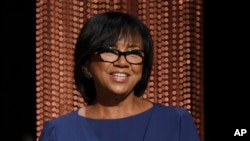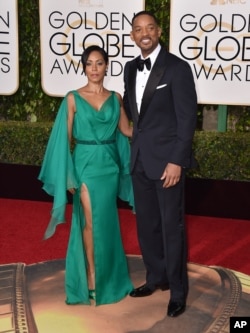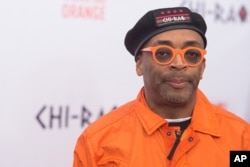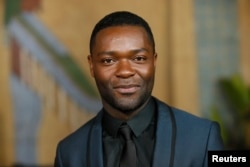The president of the Academy of Motion Picture Arts and Sciences has released a statement, her second in two years, addressing the lack of diversity among Oscar nominees.
In her statement Monday, Cheryl Boone Isaacs said she was "heartbroken and frustrated” about the lack of inclusion of African-Americans and other minorities among this year’s nominees.
Her address came after actress Jada Pinkett Smith and filmmaker Spike Lee announced their decisions to boycott this year’s Oscars as a way to express their outrage over the nomination of 20 white actors and no black ones.
Isaacs said the diversity issue had touched off “a difficult but important conversation and it is time for big changes.” The academy, she said, would be "taking dramatic steps to alter the makeup of our membership.”
According to a February 2012 study conducted by the Los Angeles Times that sampled over 5,000 of its 5,765 members, the academy was 94 percent white, 77 percent male and 86 percent age 50 or older.
One of its members is two-time Oscar winner Russell Williams II. An African-American, a native of Washington and a professor at American University, Williams won his golden statues in the category of sound mixing for the 1989 film "Glory" and the 1990 film "Dances With Wolves."
A voting member of the academy himself, Williams told VOA that the academy demographics should be in step with U.S. demographics. But just because the majority of members are older white men doesn't automatically make them racist, he said. “There is no way I am a two-time Academy Award winner," he said, "without having the majority of the white voters vote for me.”
Environment of exclusion
Williams does agree that the academy needs new blood. But he said adding it would be easier said than done, because the voters are elected for life. It's also pretty difficult to get an invitation. Those proposed for membership must either be Oscar nominees and winners themselves or have extensive and recognized experience in a movie field. So, he said, “except for attrition there are not many possibilities [for new members], and we try to keep the voters to a total of 6,000.”
Williams also noted that the 6,000 members vote independently from one another and don’t have shared agendas. He called it a large democratic body.
The problem as Williams sees it is an overall lack of inclusiveness. It starts, he said, with lack of funding for movies about minorities. “Hollywood already knows it will go in debt making some of these character-driven, touchy-feely films," he said. "They are going to go into debt only so many times, especially if the audience does not show up at the theater.”
Follow the money
Also, the Oscars campaign resembles a political campaign. Even to get noticed for the nominations, Williams said, “you have to spend a minimum of $2 million. You have to send DVDs to all voting members, not only the motion picture academy but the nominating committees of the Screen Actors Guild and Directors Guild," and commercials and websites have to be paid for as well. "Many smaller films cannot afford that and fall wayside."
He said efforts such as those by Pinkett Smith and Lee to call out the academy as exclusive add pressure on its members, who, he said, don’t like to be portrayed in a unflattering way by the press. But whether such actions will significantly change the academy's makeup remains to be seen.
Pinkett Smith is feeling the heat from some of her African-American peers who called her actions self-serving because her husband, Will Smith, did not get a nomination for his role in the film "Concussion."
In a four-minute YouTube video, African-American actress Janet Hubert criticized Pinkett Smith, saying she found it "ironic" that someone who has "made millions and millions of dollars" in the film industry would boycott an awards presentation "just because you didn't get a nomination."
But it's not hard to make the case that Hollywood isn't particularly diverse. And to some, this year's Oscar nominees are just more proof of the obvious.
British actor David Oyelowo, who was famously snubbed in last year’s nominations despite his masterful depiction of Martin Luther King Jr. in Ava DuVerne’s film "Selma," sounded off on the academy’s lack of diversity on nominees.
According to The Hollywood Reporter, Oyelowo said that “for 20 opportunities to celebrate actors of color, actresses of color, to be missed last year is one thing; for that to happen again this year is unforgivable."
But Williams said that in order for there to be more nonwhite nominees, there have to be more ethnically diverse, character-driven films and more studio executives willing to sign the checks for their production. And unless there's money in doing so, it's not likely to happen.
“It’s not called show 'love,’ it’s called show 'business,' and it really is the business of show that dictates how these other things operate," Williams said.
This year, at least, if you're a white actor, business is good.








